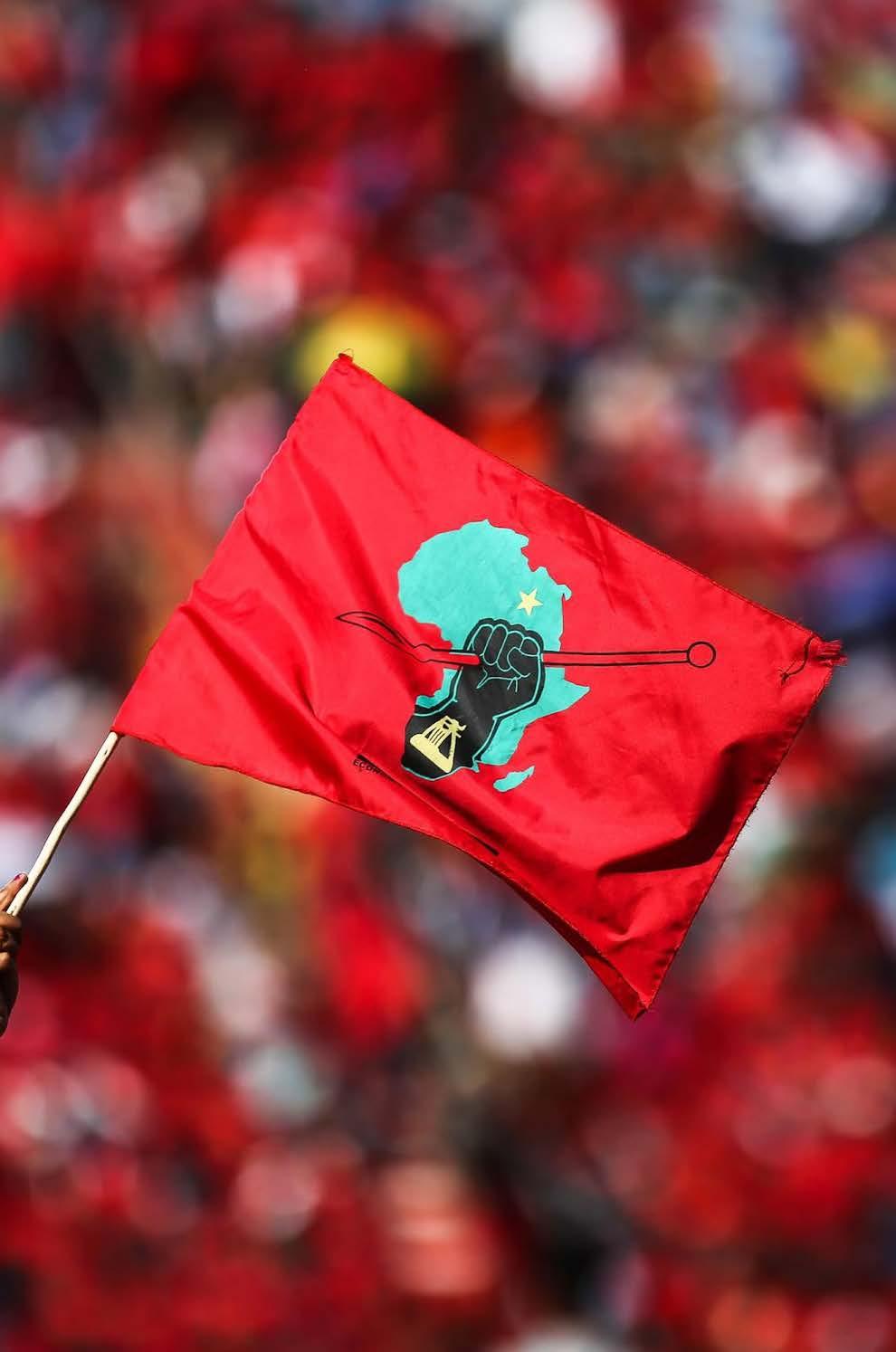
4 minute read
Interfering in domestic employment matters by the EFF: the labour court responds
By Rod Harper: CHM Legal
Labour relations in South Africa is increasingly being placed in a precarious position with the involvement of political parties in employer/ employee disputes.
Advertisement
This has resulted in the dispute resolution processes out in the Labour Relations Act (LRA) being ignored. This practice is gaining traction because aggrieved employees have turned to political parties such as the Economic Freedom Fighters (EFF) to champion their individual causes in the absence of what they deem as “inadequate” or “poor” representation by their unions.
For example, it is becoming common cause for political parties such as the EFF to contact an employer demanding their audience to discuss the dismissal of an employee following a decision to terminate the employee’s contract for serious misconduct.
In response to this perceived vacuum at the workplace, the Economic Freedom Fighters (“the EFF”) saw an opportunity and set up a labour desk and sought to engage with employers and on occasion has elected to take over union functions. As a result of fundamental flaws in the Labour Relations Act, employers have had to deal with majority and minority unions, challenges by and between competing unions as well as with a proliferation of unions and now a political party.
Your instinctive response as an employer would be to brand such demands as ludicrous, unwarranted and inappropriate and in breach of the LRA. Your position would be that it is not the role of a political party to interfere employment matters. As such, you would feel entitled to rebuff any attempts to discuss such issues with a political party and even refuse to grant it access to your premises. Recent case studies at the Labour Court support this position that employers should not engage with political parties on domestic industrial relations issues.
It appears that very little attention was given to the provisions of the Labour Relations Act by the EFF in respect of its participation at the workplace. Therefore, it became inevitable that an employer would respond to the EFF’s efforts to enter the workplace by referring complaints to the Labour Court.
A CASE STUDY CONCLUSION
In Brightstone Trading 3 CC t/a Gordon Road Spar v Economic Freedom Fighters and Others ILJ (2021) 42 page 1953 in summary the facts were as follows:
• An aggrieved employee of the Spar sought the assistance of the EFF; • The local regional secretary of the EFF addressed a letter to the company setting out several demands relating to working conditions; • The EFF requested a meeting with management and arrogantly recorded that it would not accept any objection on the basis that it should not represent its members and the workers; • Members of the EFF then entered the premises and engaged in intimidation which included threatening staff and customers and barricading the store; • On a second occasion the EFF engaged in a violent protest. • The Spar approached the Labour Court for an interdict prohibiting violent and unlawful conduct; • On two occasions the customers fled the store and on the second occasion the store closed for the safety of the public and the employees of the Spar; • Evidence was given that an official of the EFF indicated that its members would burn down the
Spar; • At the hearing, the EFF attempted to deny responsibility on the basis that it had not authorised the protestors to act on its behalf; • The Spar relied on the concept of ostensible authority (not direct authority) to prove its case and the Labour Court found that it had proven its case. • The Labour Court found that: • The EFF had to hold its members accountable when the members acted in breach of the EFF constitution; • The company was entitled to expect the EFF to not become involved in employment matters and that its employees should comply with the provisions of the LRA; • The EFF was interdicted from carrying out the unlawful action and costs were awarded against the
EFF.
This judgment of the Labour Court accords with the earlier judgments in Calgan Lounge (Pty) Ltd v NUFAWUSA & Others (2019) 40 ILJ 342 (LC) and Langplaas Boerdery CC & Others v Matshini & Others (2021) 42 ILJ 1210 (LC). In those judgments, the Labour Court held explicitly that the EFF (or any other political party) had no business engaging in workplace issues.
Employers should not engage with political parties on domestic industrial relations issues. Employers should refer them to the LRA which indicates that registered unions should deal with industrial relations issues. Employees should be advised that political parties are not entitled to assume the functions of unions. Where a political party attempts to “bully” an employer in relation to dealing with it. Often, a strong letter sent to the political party solves the problem. It is to be hoped that the EFF now accepts that it should not become involved in domestic industrial relations matters.










